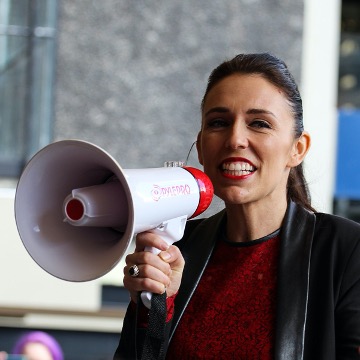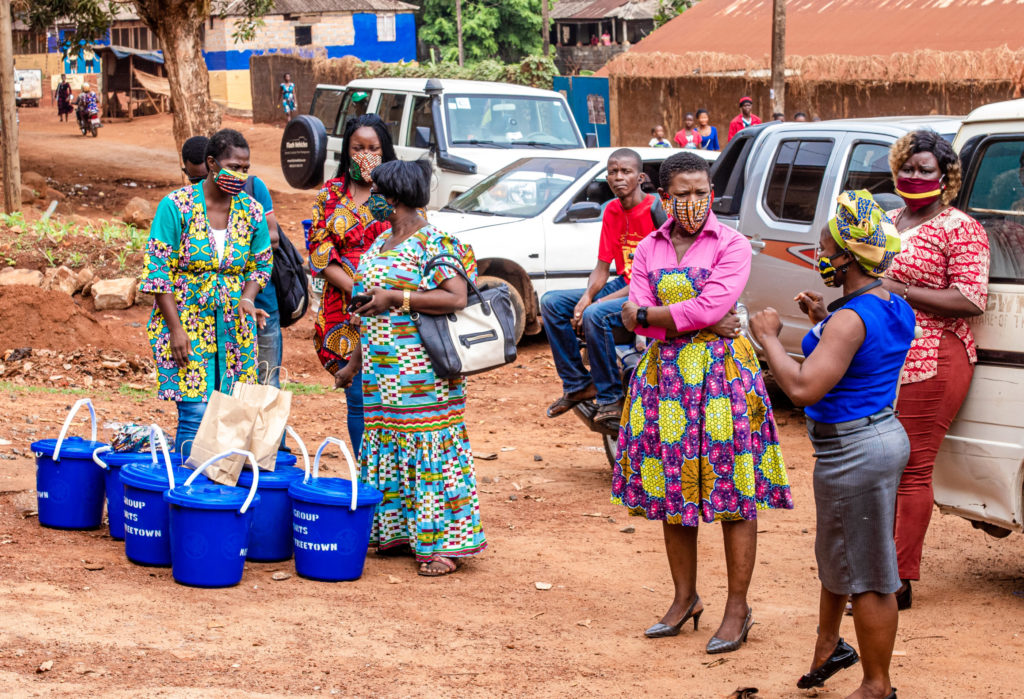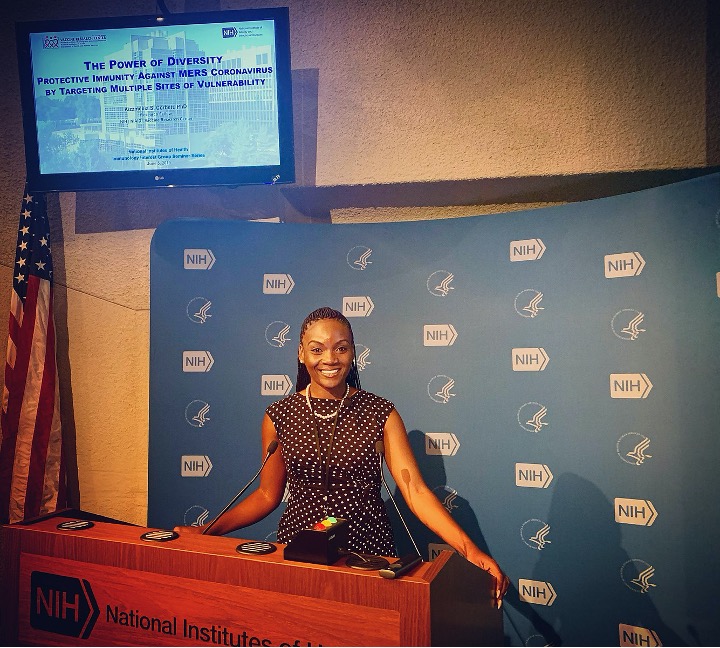In honor of Women’s History Month, we are highlighting the ways women—from grassroots organizers to heads of nations—are leading us through the COVID-19 pandemic, and how their leadership and expertise are crucial to be able to build back more equitably and resiliently.
The COVID-19 pandemic has affected women and girls in profound ways that will reverberate for many years to come. An estimated 47 million women and girls will be pushed into extreme poverty, which will further widen the gender poverty gap. Women are losing both formal and informal paid work at higher rates than men and are bearing the brunt of the endless cycles of unpaid care and domestic work at home, which have skyrocketed amid quarantines and stay-at-home orders. Globally, violence against women, including intimate partner violence and sexual exploitation, has also increased, which has led to what the U.N. has called a “shadow pandemic.”
Given the gendered impacts of the crisis and how effectively women have led us through it, their voices need to be amplified not only in the response to the crisis, but in the efforts to build better buffers to prevent the next one. When women are in decision-making roles, outcomes tend to be more inclusive and responsive for a broader range of people.
Here are some of the many ways in which women are responding to the pandemic:
As Heads of Government
Only 22 countries have a woman as the head of state or government, and many of those in office have been recognized for their effective, powerful leadership during the COVID-19 pandemic.

Prime Minister Jacinda Ardern of New Zealand quickly responded to the pandemic by taking the then-unprecedented step of closing borders. The country also introduced a system of COVID-19 alert levels early on, which triggered a stay-at-home order that helped stem community transmission. In a time of uncertainty, she communicated clearly and empathetically with New Zealanders through regular press conferences and Facebook Live sessions. To date, New Zealand has had fewer than 3,000 cases and 26 deaths, and one of the lowest coronavirus-related mortality rates among the 37 nations in the Organization for Economic Cooperation and Development.
President Tsai Ing-wen, Taiwan’s first female president, has played a tremendous role in the country’s COVID-19 response. Under her decisive leadership, the government undertook extensive investigative efforts to track the travel and contact history for each patient infected with COVID-19. Officials were able to isolate and contain the virus before any large outbreaks. Despite its population of almost 24 million, Taiwan has had 955 cases and nine deaths.
As Leaders of Cities
In urban centers—which are home to more than half the world’s population—women leaders in our Partnership for Healthy Cities have mounted impressive responses to protect populations from the pandemic’s impact and create more resilient cities in the long run.
Yvonne Aki-Sawyerr, the mayor of Freetown, Sierra Leone, made sure that policies for COVID-19 response were practical for the people in her city. The city instituted public hand-washing stations and arranged for food access and packages for people in informal settlements during stay-at-home orders. To address food insecurity in the long-run, the city is also supporting an urban farming initiative so people living in informal settlements can grow their own food.

In the U.S. in San Francisco, Mayor London Breed took quick action to protect residents by declaring a state of emergency and enacting restrictions on gatherings early on. Under Breed’s leadership, understanding that the pandemic was greatly affecting many of the city’s first responders, the city’s Department of Children, Youth and Their Families provided child care to first responders. Breed’s early actions received a lot of criticism at first, but ultimately her forward thinking helped protect San Francisco residents.
As Health Care Workers
Women are the majority of the world’s health care workers, which puts them at the heart of the fight against COVID-19. Globally, women comprise 70% of the health care workforce, including 90% of the nurses who are tirelessly caring for patients throughout the crisis. Female health workers are also making a huge difference in rural communities and small towns. For example, in India, Archana Ghugare and the other nearly 1 million women in the Accredited Social Health Activists program—likely the world’s largest team of all-female community health workers—are going door-to-door to help people get tested and treated.
As Scientists

Women in science have also been instrumental in developing vaccines to combat the virus. Kizzmekia “Kizzy” Corbett is one of the lead scientists behind the U.S. government’s research, which led to the development of the Moderna COVID-19 vaccine. Özlem Türeci is co-founder of the biotechnology company BioNTech, which developed the first approved RNA-based vaccine against COVID-19. And Katalin Karikó’s research in recent decades on using mRNA to fight disease is now the basis of several of the vaccines.
As Grassroots Organizers
Women are often the eyes and ears on the ground in local communities. They know the issues their neighbors are facing and what kinds of services are needed. Grassroots women’s organizations and activists around the world are leading local charges against COVID-19 and filling service gaps in their communities.
When the pandemic hit, women in the Libyan Women’s Network for Peacebuilding adapted their online activism and mobilized their regional networks to respond. They shared information about how the virus spreads via radio and disseminated hotline numbers for people experiencing gender-based violence. They also distributed protective equipment to health care professionals and people in prisons and detention centers.
Drawing on lessons learned from the Ebola crisis which saw dramatic increases in intimate partner violence, women’s rights activists in the Democratic Republic of the Congo organized social media campaigns prompting community leaders to speak out against abuse. Video clips also featured men speaking about how it was important to do their share of housework to promote gender equality in domestic tasks.
Dr. Ala Stanford, a pediatric surgeon in Philadelphia in the U.S., jumped into action when she saw that Black people in her community were being disproportionately affected by the virus but did not have enough access to testing. She filled a van with supplies and began to administer tests for anyone who needed them. She went on to found the Black Doctors COVID-19 Consortium to facilitate testing and vaccination for Black communities in her city.
This Women’s History Month, we hope you’ll join us in celebrating and elevating women’s leadership during the pandemic and beyond.
About Vital Strategies Vital Strategies is a global health organization that believes every person should be protected by a strong public health system. We work with governments and civil society in 73 countries to design and implement evidence-based strategies that tackle their most pressing public health problems. Our goal is to see governments adopt promising interventions at scale as rapidly as possible. To find out more, please visit vstrategystage.wpengine.com or Twitter @VitalStrat.